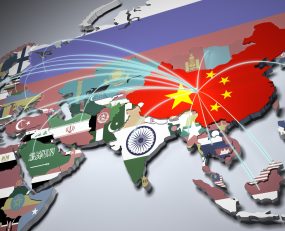
China’s President, Xi Jinping, has avoided any mention of the threats of a trade war emanating from Washington, however his speech on Tuesday implied important changes to how China does business with the rest of the world.
It was fundamentally a reiteration of proposals hinted late last year but not really elaborated upon.
One of the headline policies mentioned was a reduction in the level of tariffs imposed by China on imported ‘fully-built-up’ cars. If this happens it would have a significant affect on the pattern of trade. At present the economics of selling imported cars in China are difficult due to the high and complex taxes imposed. It only really makes sense to import the most expensive vehicles, yet such is the demand for new cars in China that this still provides substantial business for German assembly plants in particular. If this tariff falls the volume of imports will increase, moderated only by the considerable assembly plant capacity in China already.
In addition, Xi Jinping also mentioned that his government would look to reduce restrictions on foreign ownership in the Chinese automotive sector. Again though, the real policy is not clear. It may only apply to electric vehicles. However, any reduction on ownership restrictions would be another major change to the Chinese automotive sector. There are no fully owned subsidiaries of non-Chinese vehicle manufacturers, all are joint-ventures with Chinese companies. However, the Chinese vehicle manufacturers are not in a strong competitive position and any change in this area would be a recognition of reality. Indeed, it might be suggested that ending the joint-venture structure would make China a more attractive production location.
A possible consequence of these policies, if followed through, is that trade in vehicles and automotive related engineering items could rise. Cheaper, higher quality vehicles would be available to the Chinese consumer whilst global vehicle manufacturers could leverage their large new plants in China to sell on a global basis. Such a new trade settlement would lead to a considerable increase in trade in and out of China as supply chains became more rational. The clear implication is a considerable increase in freight traffic, particularly for sea freight.
However, any forecast should be cautious. In conditions of freer trade there would be losers, notably the Chinese vehicle manufacturers. And this goes to the heart of the trade problems between China and the rest of the world. China’s vehicle manufacturers are largely state-owned enterprises and the Chinese government is either unwilling or unable to apply market disciplines to such organisations. The prospect of a Chinese state-owned car or truck manufacturer going bust is not one Xi Jinping is willing to entertain as yet.
Source: Transport Intelligence, April 12, 2018
Author: Thomas Cullen